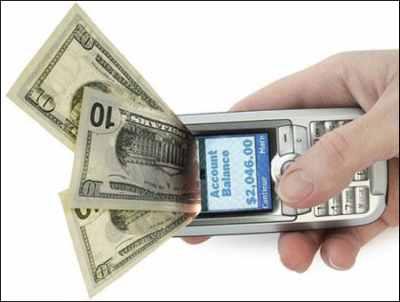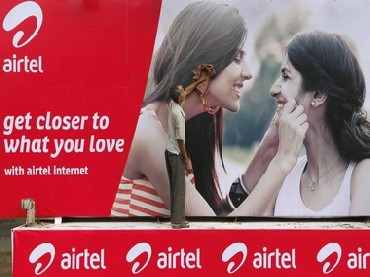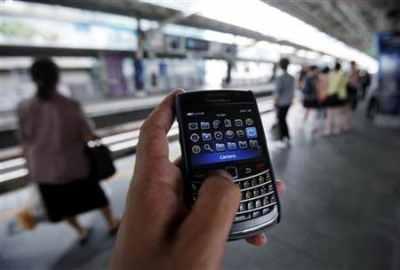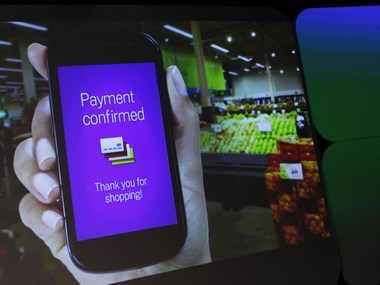 | « Back to article | Print this article |
Mobile wallet takes aim: Buck gets a bang
Cash is the prime target, and credit card could take the next hit. Clearly, telecom operators are on a war footing -- doubling their efforts to promote mobile wallet services, that allow subscribers to load money onto their mobile accounts, and spend at will.
Bharti Airtel has been the first to offer this service, with a good deal of advertising. Loop Mobile, too, introduced the service in collaboration with ZipCash, although with much less fanfare.
Mobile wallets allow subscribers to convert their cell phones into virtual wallets, for utility services such as electricity bill payments, prepaid recharges, digital TV recharge, online shopping, buying movie tickets, etc. Consumers hope -- for transactions' sake -- that mobile money will erect yet another wall of security.
"A credit card could be swiped twice or for the wrong amount. The mobile wallet service can perhaps avoid this," says Hemant Oza, a student from Mumbai.
Click NEXT to read more...
Mobile wallet takes aim: Buck gets a bang
Airtel has already tied-up with around 18,000 merchants across the country, to allow for mobile payments. Providers tout an added advantage of the service: Its ability to transfer money (via an SMS) to a receiver, however remote. "But these transactions are very few," says Oza.
Surya Mahadevan, chief operating officer, Loop Mobile, believes the mobile wallet can morph into a lifestyle choice for many.
Already, mobile phone usage in financial transactions has been increasing. According to a BCG report, the usage in India is set to surge. It projects payments and banking transactions through mobile phones to touch the $350-billion mark by 2015.
Click NEXT to read more...
Mobile wallet takes aim: Buck gets a bang
There could be a tectonic shift in transactions, now being done through credit and debit cards, as mobiles emerge on the financial horizon, according to Srinivas Nidugondi, head, mobile financial solutions, Comviva, a value-added service provider. Presently, credit and debit cards account for 10-15 per cent of total payments only.
"What mobile money service providers are really competing with are the cash transactions. When cash transactions go mobile, the number of subscribers of this service could shoot up to 100 million in the next three years. The percentage of users now, however, is negligible at low single digits," says Nidugondi.
800 million mobile connections and a tele-density of 97.4 per cent could be a sure-fire recipe for success.
Click NEXT to read more...
Mobile wallet takes aim: Buck gets a bang
"Mobile money effectively bypasses debit cards, cash and online banking. This could be a boon for the 40 per cent of people who do not have bank accounts.
They could simply leapfrog into the banking space," says Shubhradeep Guha, vice-president, SapientNitro, a tech-marketing company.
"I do not foresee myself giving kids pocket money in cash. Mobile money is safer, auditable, easy to top up -- and hence the future," adds Guha.
Click NEXT to read more...
Mobile wallet takes aim: Buck gets a bang
Ready for lift-off?
Not so fast, rue many. The uptake isn't going to be easy. Reason: Off-cash transactions are viewed with scepticism. "It is extremely difficult to convince users. It will be a while before mobile money gains a firm foothold in India," says Baburajan K, chief editor, TelecomLead.com.
Mobile payment service provider, Atom Technologies, however, hadn't seen this coming -- a surprise surge in their app downloads. In the last two years, they logged eight lakh downloads, mostly for movie-, rail- and air-ticketing.
"The initial adoption was very slow. Even now, it hasn't emerged as expected. I wouldn't say I am very happy with this number, but it's a decent start. It is very difficult to predict the Indian scenario," sums up Dewang Neralla, director, Atom Technologies.





